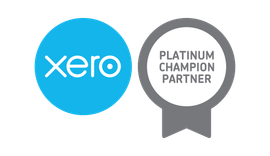November 6, 2025
ATO Focus on Small Business The ATO is actively identifying and addressing errors among businesses with turnovers between $1 million and $10 million. Key industries under scrutiny include property and construction, as well as professional, scientific, and technical services such as engineering, IT, design, and consulting. Common issues observed include: Omitted income or sales in Business Activity Statements and tax returns, including income from related entities. Overstated expenses or GST credits. Private expenses incorrectly reported as business-related or not properly apportioned. Failure to register for GST when required. Incorrect R&D tax incentive claims for ineligible activities. Lack of independent advice from registered tax agents, particularly in contractor arrangements. By highlighting these issues, the ATO aims to help small business operators improve compliance and avoid common mistakes. Dual Cab Utes and FBT Dual cab utes are not automatically exempt from fringe benefits tax. If an employer provides a dual cab ute for work purposes and it is available for personal use, it may be subject to FBT. To qualify for an exemption, the vehicle must: Be an eligible vehicle , meaning it is designed to carry at least one tonne, more than eight passengers, or it is not primarily designed for passenger use. Be used only for limited private purposes , such as minor, infrequent, or irregular trips. If these conditions are not met, the employer may be liable for FBT. Employers should monitor employee vehicle use and maintain proper documentation to determine eligibility. Claiming Business Expenses Taxpayers can claim deductions for most business expenses if they comply with the ATO’s three key rules which are: The expense must relate directly to business use. If the expense has both business and private use, only the business portion can be claimed. Taxpayers must keep records to substantiate their claims. New ATO Data-Matching Programs The ATO continues to enhance its data-matching programs to improve compliance, detect errors, and prevent fraud. Data is used to pre-fill returns, verify accuracy, and identify taxpayers who may need assistance. When discrepancies arise, the ATO may contact tax agents or their clients to clarify the differences. Rental Properties ATO will issue letters to taxpayers where its data suggests that rent income was omitted or incorrect in previously lodged returns. If you receive such a letter, please contact our office for assistance. Offshore Merchant Data-Matching The ATO will collect merchant transaction data from Australia’s major banks for the 2025–2027 financial years. Around 9,000 offshore merchant records will be acquired annually. SMSF Compliance and Release Authorities The ATO has noted an increase in self-managed super funds failing to comply with release authorities such as excess contributions or Division 293 tax. Common issues include: Failure to respond within the required 10 business days. Incorrect responses, such as not releasing the full amount or not submitting a release authority statement. Non-compliance can attract significant penalties. Trustees should ensure robust systems are in place to respond promptly and correctly to ATO release authorities. The information in this publication is general in nature and should not be relied upon as professional advice. Individuals should seek specific guidance to ensure applicability to their personal circumstances.
















